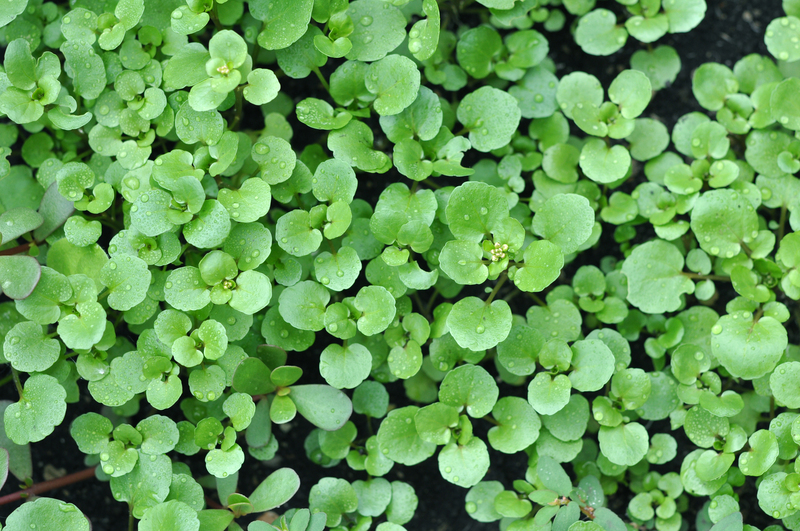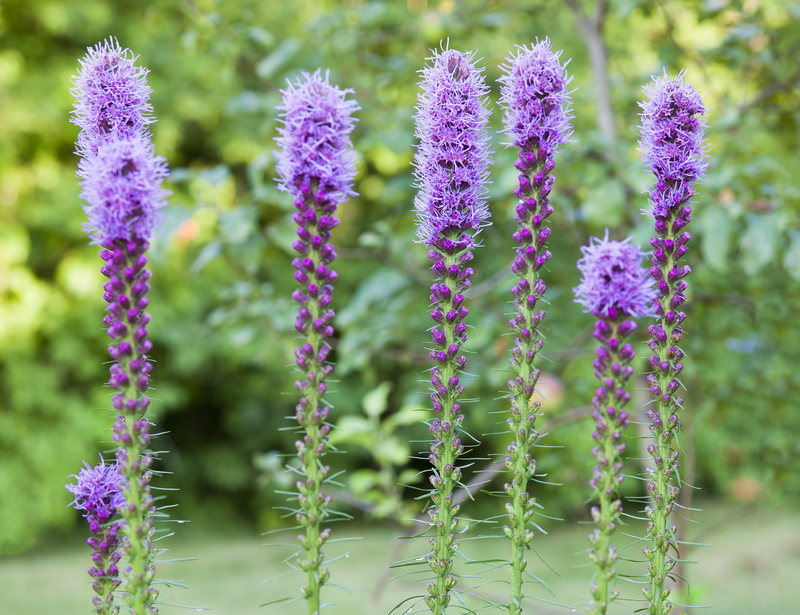From Waste to Wealth: Creating Nutrient Soil
Posted on 20/08/2025
From Waste to Wealth: Creating Nutrient Soil
What if your kitchen garbage, garden clippings, and even fallen autumn leaves could become a wealth of nourishment for your garden and the planet? By learning the art of transforming organic waste into nutrient soil, you can not only reduce landfill waste but also reap bountiful harvests and foster healthier ecosystems. This comprehensive guide will walk you through every aspect of turning waste into nutrient-rich soil, sharing expert techniques and proven methodologies to revive your garden from the ground up.
Understanding the Waste-to-Wealth Revolution
Nutrient soil is the lifeblood of a thriving garden. Traditionally, chemical fertilizers have been used to replenish soil nutrients, but growing awareness about sustainability, soil health, and environmental conservation has sparked a revolution: turning waste into wealth. This transformation is central to both home gardening and large-scale agriculture, aligning with eco-friendly, circular economy principles.
What Is Nutrient Soil?
- Nutrient soil refers to soil that is rich in organic matter, essential minerals, and beneficial microorganisms.
- Such soils promote healthier plants, bigger blooms, and robust root systems.
- It improves water retention, structure, and permeability of the soil bed.
Why Transform Waste Into Nutrient Soil?
- Reduces landfill waste and associated methane emissions.
- Creates a sustainable cycle of food production and waste management.
- Enriches soil naturally, eliminating dependency on chemical fertilizers.
- Enhances the ecosystem--supporting pollinators, microbes, and birds.
- Saves money by making your own organic fertilizer.

Types of Waste That Make Excellent Nutrient Soil
Not all waste is created equal when it comes to creating rich, plant-loving soil. Understanding which types of waste yield the best results can maximize your composting efforts.
Green Waste vs. Brown Waste
- Green Waste: Nitrogen-rich materials such as fruit and vegetable peels, coffee grounds, fresh grass clippings, and plant trimmings.
- Brown Waste: Carbon-rich sources like dried leaves, straw, cardboard, shredded paper, and wood chips.
Tip: Achieve a balanced compost pile with a ratio of roughly 2 parts brown to 1 part green. This ensures proper decomposition and helps prevent odors.
Waste Materials to Exclude
- Dairy and meat products--they attract pests and cause odor.
- Diseased plant material--may transfer pathogens into your soil.
- Pet waste and plastics--these don't break down safely.
Composting: The Cornerstone of Soil Enrichment
Composting is the process that transforms everyday waste into garden gold. Mastering this technique can revolutionize your gardening practices--and creating nutrient-dense soil from waste can take place in various ways, whether through traditional bins, tumblers, or even direct garden bed composting.
How to Start a Basic Compost Pile
- Choose Your Location: Select a well-drained, shaded spot away from your home.
- Prepare the Site: Loosen the ground to help drainage and encourage earthworms to enter.
- Add Waste in Layers: Alternate between green and brown waste, creating diverse layers for optimal microbial activity.
- Maintain Moisture: The pile should feel like a wrung-out sponge--not too dry, not too wet.
- Aerate Regularly: Turn the pile every 2-3 weeks to supply oxygen and accelerate decomposition.
- Monitor Progress: Your compost will gradually turn dark and crumbly, with a fresh earthy smell, typically in 3-6 months.
Pro Tip: Chop larger materials into smaller pieces to speed up the breakdown and create a finer, richer soil amendment.
Advanced Composting Techniques for Superior Soil
If you're ready to take nutrient-rich soil creation to the next level, these advanced techniques can help intensify the benefits:
Vermicomposting (Worm Composting)
Vermicomposting uses special red worms--Eisenia fetida--to digest organic waste and produce castings even richer in nutrients and beneficial microbes than traditional compost.
- Ideal for small spaces and indoor composting.
- Produces vermicast, often called "black gold" for soil enrichment.
Bokashi Composting
Bokashi is a Japanese method that uses effective microorganisms to ferment kitchen waste, including cooked foods, before adding to soil.
- Fast (2-4 weeks for fermentation, then bury for final breakdown).
- Allows a wider range of materials, including small amounts of dairy and meat.
Trench Composting
Bury kitchen waste directly into garden beds and let nature do the work. This method adds nutrients right where roots need them--and is extremely low-effort.
Essential Nutrients for Creating Quality Soil
For waste-to-wealth soil to truly serve your plants, it must provide a full spectrum of elements:
- Nitrogen--Needed for leafy growth and protein production.
- Phosphorus--Vital for root development and flower/fruit formation.
- Potassium--Supports overall plant health and disease resistance.
- Calcium, Magnesium, and Trace Elements--Crucial for enzyme function and strong cell walls.
- Organic matter--Feeds soil organisms, improves moisture holding, and encourages a rich soil ecosystem.
How to Test and Enrich Your Soil
Soil Testing
Once you've created compost from waste, you'll want to evaluate your soil's pH and nutrient profile. Simple test kits are available at garden centers, or you can send samples to local agricultural extensions.
- Target pH: 6.0-7.0 for most vegetables and ornamentals.
- Amend with specific minerals or more compost as needed to balance deficiencies.
Supplements to Enhance Nutrient Soil
- Bone meal or rock phosphate can increase phosphorus content.
- Wood ash provides potassium and raises pH.
- Crushed eggshells add calcium.
Note: Always incorporate organic amendments and mineral supplements judiciously to avoid nutrient imbalance.
Best Practices for Applying Your Nutrient-rich Soil
Here's how to maximize the impact of your new "wealth" in the garden:
- Mix compost thoroughly into garden beds before each planting season.
- Top-dress around perennials or vegetables during the season to boost growth.
- Use finished compost as a mulch layer to suppress weeds and retain moisture.
- Brew compost tea from finished compost for a foliar spray or root drench--giving your plants a direct shot of nutrients and beneficial microbes.
Environmental Benefits: Building a Greener Future
- Diverting organic waste from landfills cuts methane emissions, a major greenhouse gas.
- Healthy, living soils can capture carbon and help mitigate climate change impacts.
- Composting supports a local, sustainable food system--benefiting your community.
By adopting waste-to-wealth practices for nutrient soil creation, home gardeners and farmers both play a vital role in healing and enriching the environment.
FAQs: Transforming Waste into Wealthy Soil
How long does it take to create nutrient-rich soil from waste?
Typical compost can be ready in as little as 3-6 months with proper aeration and moisture. Accelerated techniques like vermicomposting may produce usable compost in 2-3 months.
Can I compost all kitchen waste?
Most fruit, vegetable scraps, coffee grounds, eggshells, and tea bags can be composted. Avoid meat, dairy, and oily foods unless using closed systems like Bokashi.
Does compost attract pests?
Properly managed compost--balanced green/brown materials, regular turning, and excluding meats--rarely attracts rodents or flies.
What's the difference between compost and humus?
Compost is decomposed organic matter; humus is the final, stable product remaining after full decomposition--it's what gives forest soils their rich, dark appearance.

Conclusion: From Kitchen Waste to Garden Wealth
Turning waste into nutrient soil is within everyone's reach--helping you save money, boost your gardens, and nurture a healthier planet. Every banana peel, autumn leaf, or spent coffee ground has the potential to power new life. By following the principles and steps outlined in this guide, you're investing not only in your personal harvests but also in the future health of our soils and ecosystems.
Start your journey today: collect, compost, and cultivate your way from waste to wealth!



